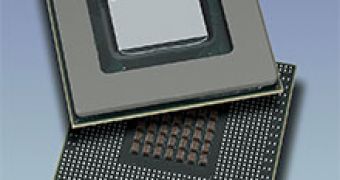Sony announced a prototype computer board based on the Cell processor architecture, a processor that is very close to the chip found in the gaming console PlayStation 3, and that prototype computer board will be shown at a conference in the U.S. The Cell processors were developed during a joint research program by IBM, Sony and Toshiba and each Cell chip consists of a main processor and eight sub-processors that add up to an impressive processing power - 230 Giga Flops (floating point operations per second).
The "Cell Computing Board" prototype developed by Sony combines two separate technologies, the Cell Broadband Engine microprocessor and the RSX graphics processor. The end result is small enough to fit inside a server rack mount and it is a high power computing platform that is more advanced than the Cell processor alone according to Sony. According to the news site InfoWorld the prototype computer board will be shown at the SIGGRAPH event that will take place from Aug. 7 to 9 at the San Diego Convention Center, and which will focus on the computer graphics industry. Apart from the Cell based prototype computer board, Sony will come forward with a number of related demonstrations like "real-time processing of "4K images," which are digital cinema pictures with a resolution of four times that of HDTV, computer graphics rendering, and a multi-threaded physics simulation".
Sony's prototype comes after Toshiba's own demonstration of Cell based computer systems that are employed in graphics work and applications at the last year's Ceatec exhibition in Japan where the company showed a number of "workstations that could handle multiple real-time HDTV streams or motion capture and process in real time". "Looking ahead, both Sony and Toshiba are working on more powerful versions of the chip for use in professional-class computers and smaller, low-power versions for use in consumer electronics devices beyond the PlayStation 3 games console".

 14 DAY TRIAL //
14 DAY TRIAL //